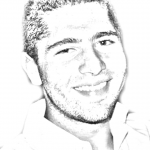 In “Roughing It,” Mark Twain wrote: “Travel is fatal to prejudice, bigotry and narrow-mindedness.” I have been lucky this year to travel to places — both in the United States and abroad — that few other people have had the privilege to see. All this wandering has opened my mind and sometimes forced me into discomfort. It has made me reconsider beliefs that I held as truths and face prejudices I did not know I had. This past year’s experiences have confirmed the importance of travel as a great equalizer. Meeting people and cultures that are ripe with stereotypes in the United States has allowed me to shed the judgments that society creates for us. Instead of seeing other people through the formulaic lens of commonly held beliefs and media tropes, I see their humanity, their aspirations and their search for meaning.
In “Roughing It,” Mark Twain wrote: “Travel is fatal to prejudice, bigotry and narrow-mindedness.” I have been lucky this year to travel to places — both in the United States and abroad — that few other people have had the privilege to see. All this wandering has opened my mind and sometimes forced me into discomfort. It has made me reconsider beliefs that I held as truths and face prejudices I did not know I had. This past year’s experiences have confirmed the importance of travel as a great equalizer. Meeting people and cultures that are ripe with stereotypes in the United States has allowed me to shed the judgments that society creates for us. Instead of seeing other people through the formulaic lens of commonly held beliefs and media tropes, I see their humanity, their aspirations and their search for meaning.
I wanted to study abroad in the Middle East, partly just to see for myself what it was like. I was born in Colombia, and while I had the opportunity to travel there, see astonishing landscapes and meet great people, often people close to me would only associate Colombia with violence and drugs. I thought the Middle East might suffer from the same misfortune, but instead of stereotypes of drug violence, it was plagued with stereotypes of Islamist terror (whatever that means).
I have to admit that before going, the media had won — to some degree. I was somewhat scared and apprehensive about going to Jordan and committing to living in the Middle East for four months. Yet, I arrived there and was welcomed with open arms by an Arab Christian family. The members of my host family are some of the kindest people that I’ve had the pleasure to know.
I traveled to other countries including Lebanon (this one against the recommendation of a former Green Beret) and was awestruck. It is a cosmopolitan place with a long history, where the people swiftly blend English, Arabic and French in conversation, and where I didn’t feel unsafe at any moment. Yet, the Department of State has issued a travel warning saying that all U.S. citizens should avoid travel there.
What I saw was more than cities worth visiting. I came to know people that were energetic, friendly and passionate. I understood that many of the Israelis, Arab Christians and Muslims I met have a level of commitment to their spiritual lives that is far rarer in the West. Most importantly, I had to consider the different identity politics present in the region. How could I reconcile the fact that my host family — who are nothing short of a real family to me — were refugees kicked out of their homeland not once but twice by Israel’s wars with the fact that I loved Israel when I visited it? How could I reconcile my friendships and respect for classmates who had served admirably in the Israel Defense Forces with my Jordanian professor whose niece had been killed in Gaza, therefore seeing the IDF as murderers?
I think, in the end, my most important realization from traveling was that it is possible that two seemingly contradictory narratives or perspectives may both have validity. It would be far easier to see issues of justice and human rights in black and white, but any view that understands all individuals’ human dignity, essential rights and aspirations must be far more nuanced. Parting from a point that understands our shared humanity is more important than the differences that divide people would allow for integral human development, and this is to what we should aspire.
The last leg of my travels so far this year has taken me to many of the national parks in this country. In these vast areas of wilderness, I’ve met people from all over the world and from different walks of life. I have connected with them easily, unencumbered by the baggage that people carry when they’re living in society.
In nature, few things matter in these encounters, besides the fact that you’re human, they are human, and you both have an aspiration to experience beauty and the ability to know the sublime as a feeling. We would all do well to strip ourselves down and identify more strongly with what makes us human rather than with what makes us different from each other. Maybe then, people all over the world could better live up to their potential and grow as human beings.
The results of such a change would be beautiful — some would venture to call it sublime.
Sebastian Nicholls is a rising senior in the School of Foreign Service. This is the final appearance of Forward Footprint.













